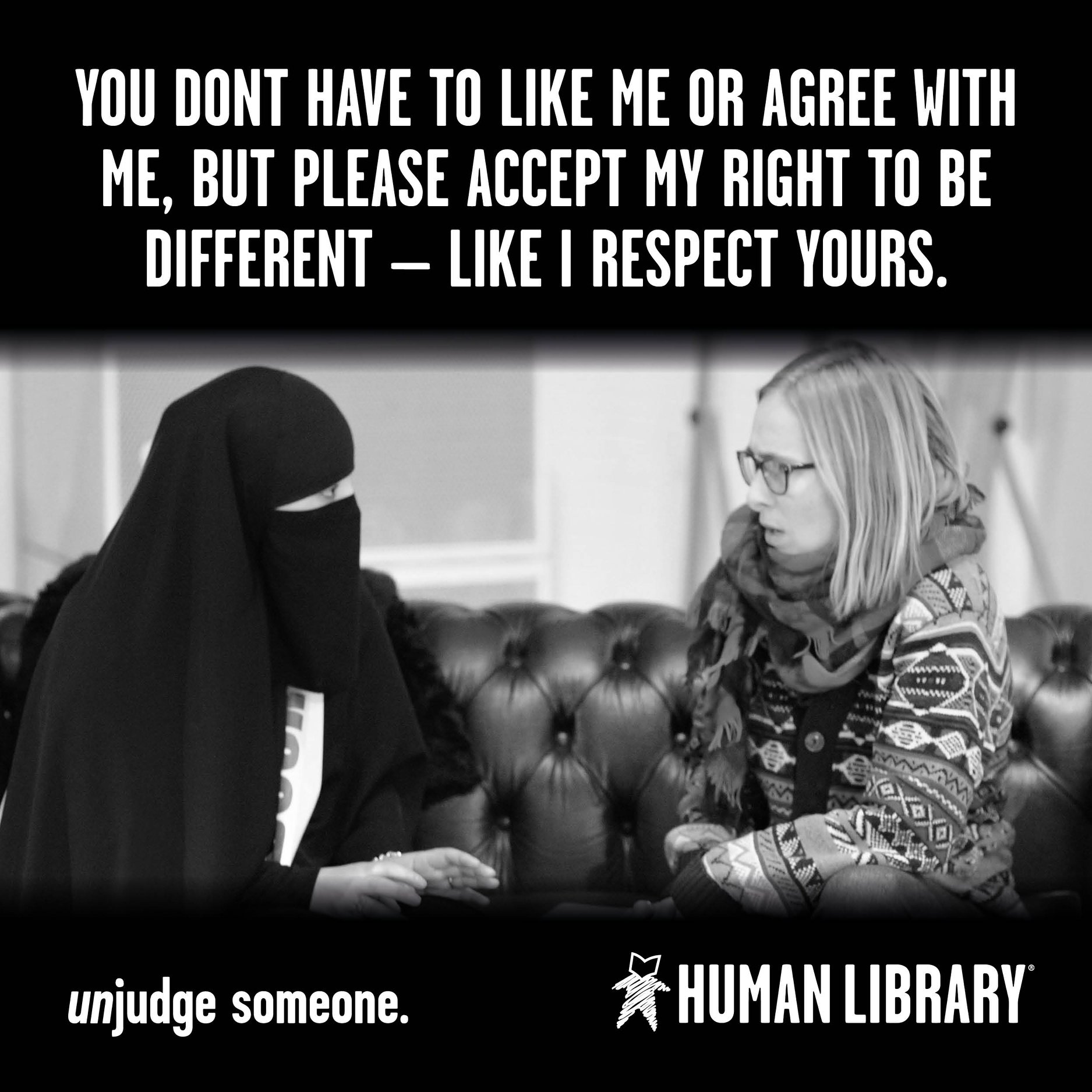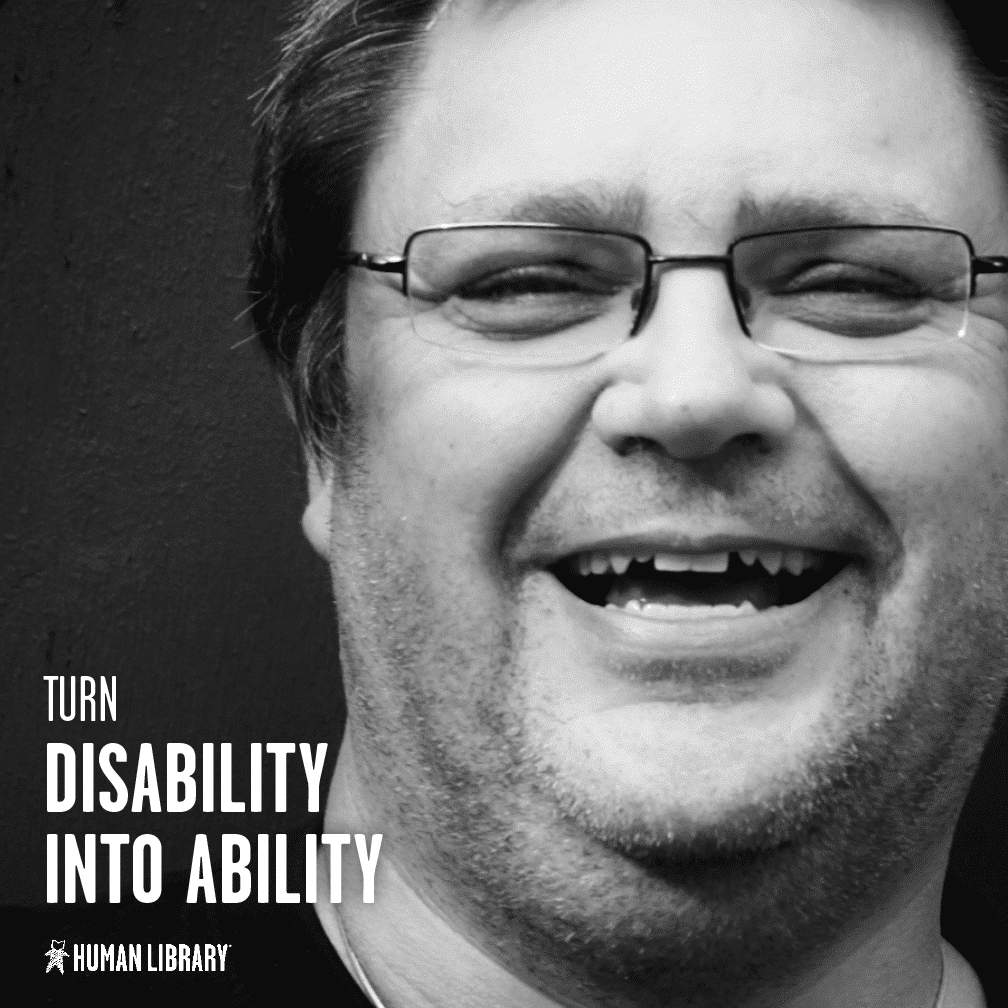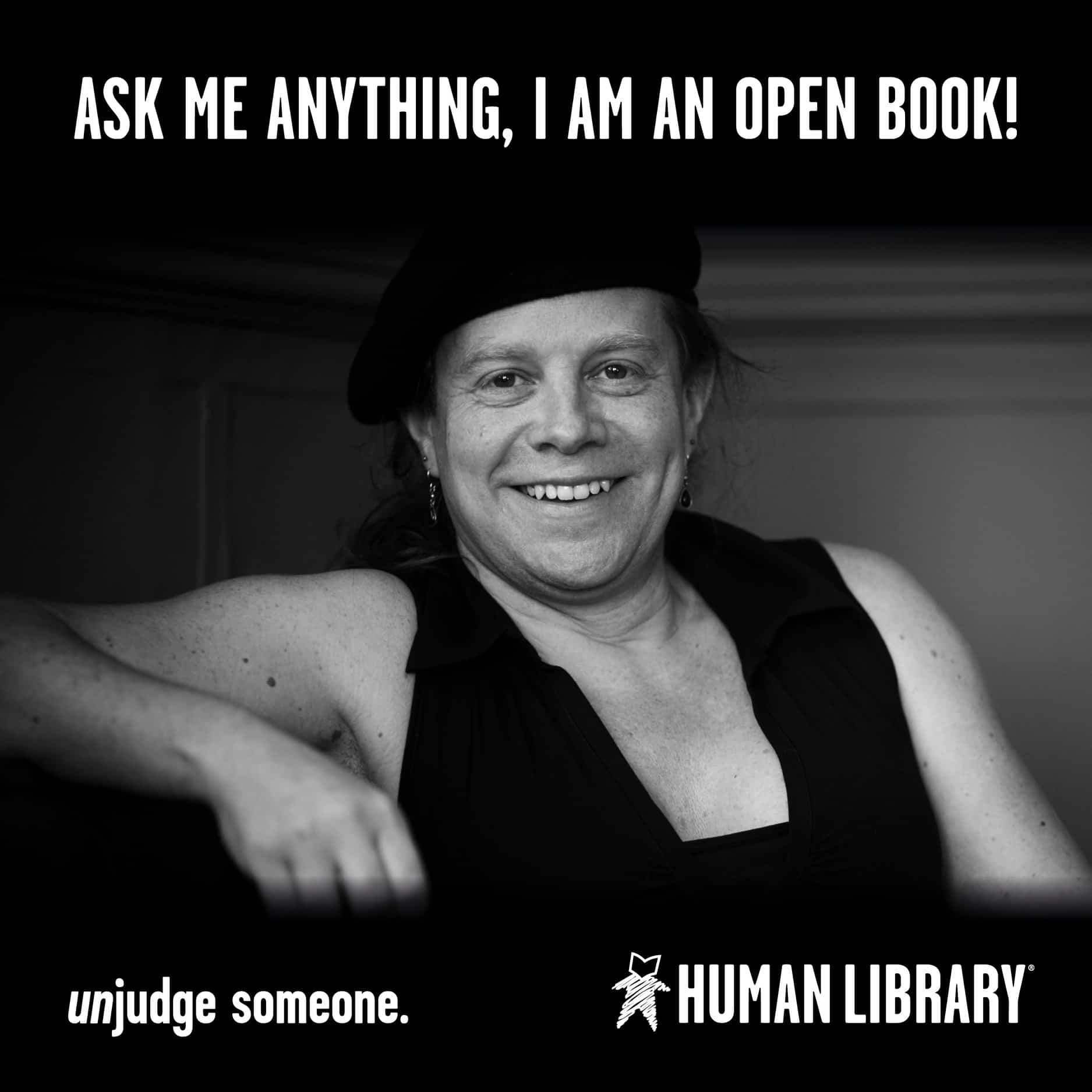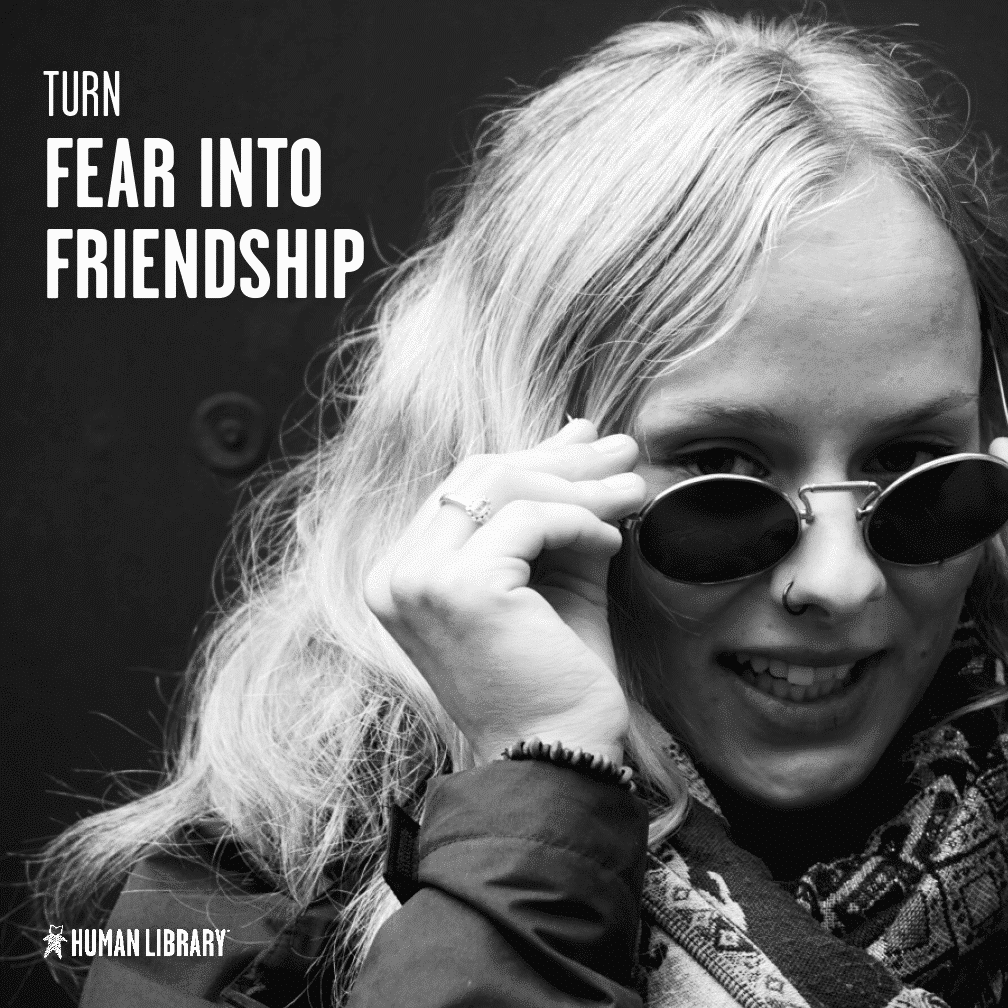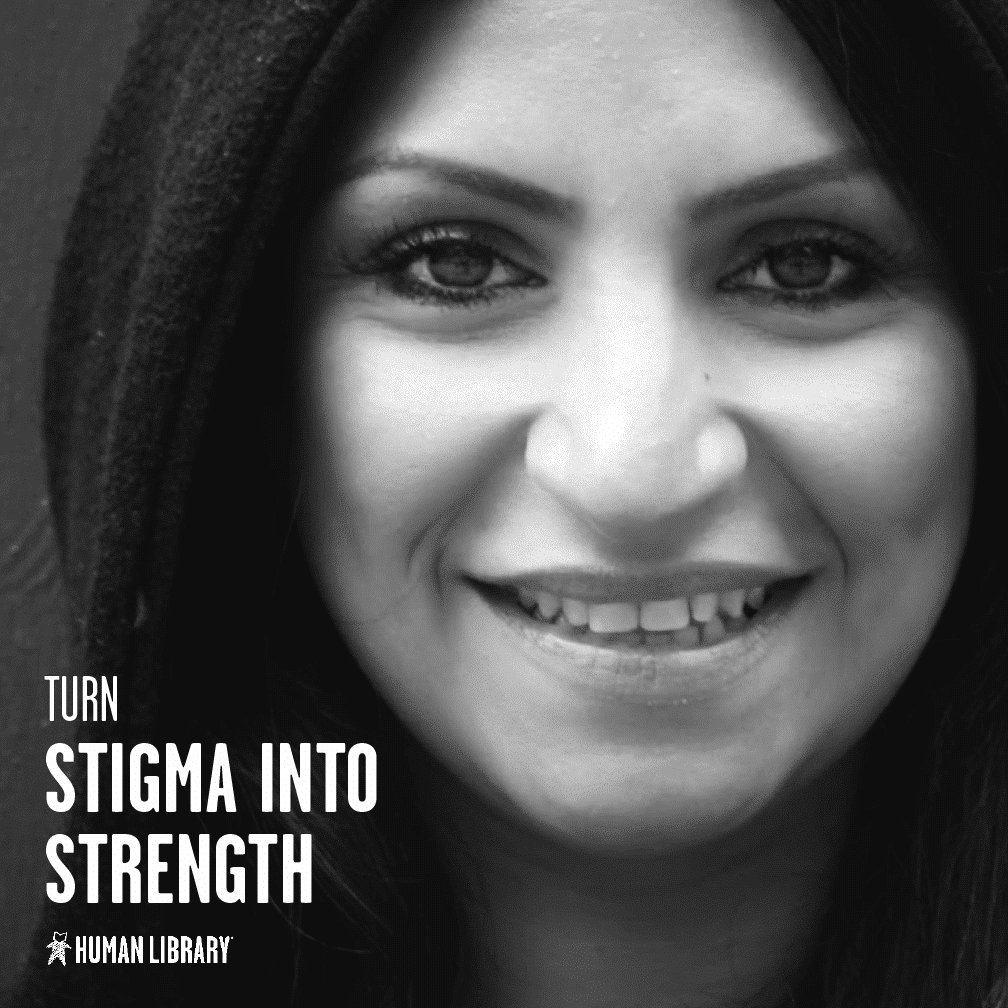Denmark (Copenhagen)
We’ve all heard the expression ‘Don’t judge a book by its cover’. Yet we’re all guilty of doing it. And you know we’re not talking about books here.
Everyone makes snap judgements continually throughout the day. We read facial clues, watch postures and gestures, and make judgements about people from their backgrounds or appearance.
The Human Library Organization has created a cool storytelling project to help us ‘unjudge’. You borrow a human being from a ‘library’ and leaf through their story as if they were a book.
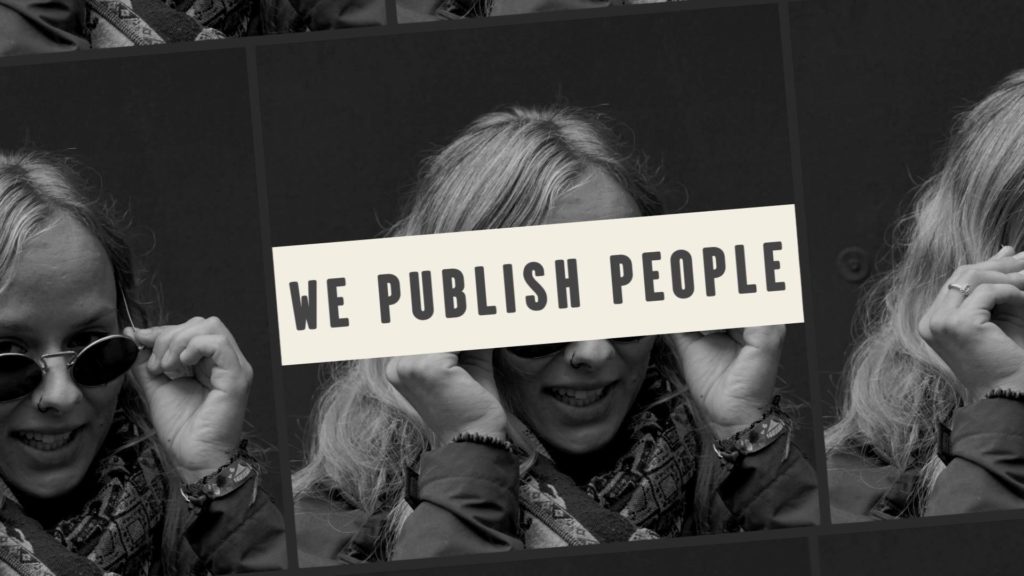
A broad selection of characters become published living books and you become the reader; invited to share a moment with a complete stranger in the hope of fighting taboos and stigma.
“How are we to understand each other, if we do not have the opportunity to talk to each other?” – Ronni Abergel
The idea is to spark open and honest conversations so we can all better understand diversity. “We create a safe space where strangers can discuss taboo topics openly and without condemnation,” the team tells us. “We believe this contributes to creating more inclusive and cohesive communities across cultural, religious, social and ethnic differences.”
A ’book’ is a person that volunteered to represent a stigmatised group who is willing to share their backstory and answer questions to help challenge perceptions. The book title describes their experiences: from ADHD to Young Mum via Black Activist, Survivor of Trafficking, Latino, Transgender and more. “We publish our books with concrete titles, such as Autism, Homeless, Bisexual, Buddhist, to reflect how they are stereotyped by society. By shining light on the biases we have about people, we create the premise necessary to actively challenge them.”
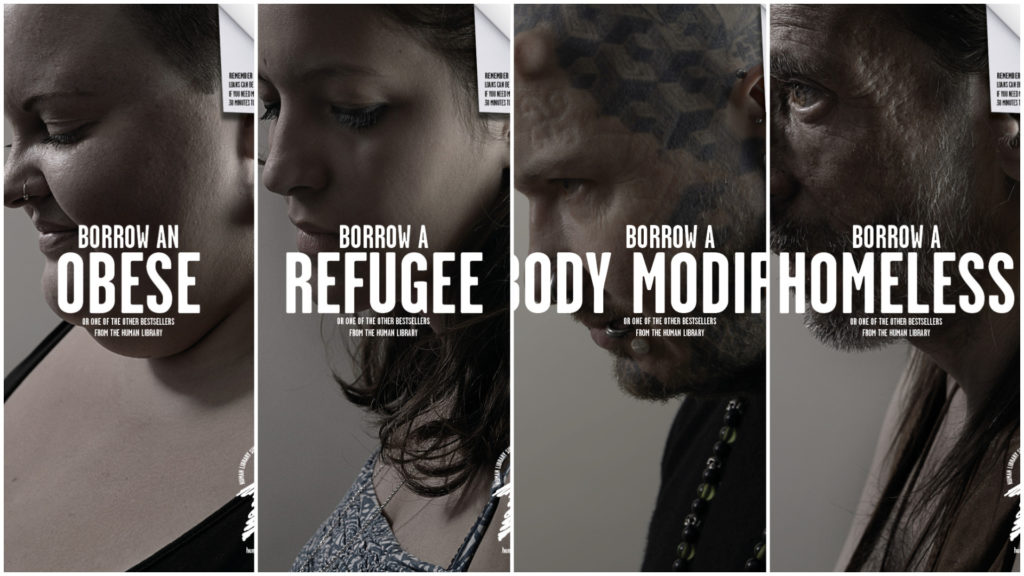
The Human Library (or ‘Menneskebiblioteket’ in Danish) was born at a music festival in 2000 when journalist and human rights advocate Ronni Abergel, his brother Dany and colleagues Asma Mouna and Christoffer Erichsen decided they wanted to raise awareness against youth violence in Copenhagen and challenge stereotypes through dialogue.
“The idea is fairly simple. We arrange for people to meet and talk in a safe and secure environment,” Ronni explains. “That has proven to be a useful and effective method for allowing people to get to know about each other through conversation.”
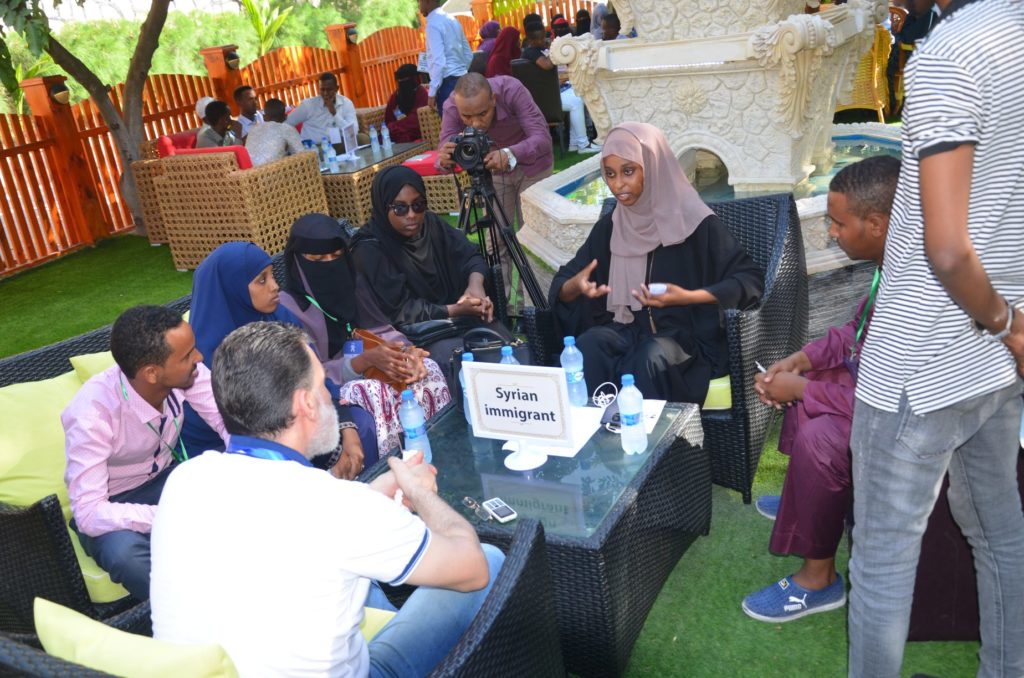
The original event in Copenhagen was open eight hours a day for four days straight and featured over fifty different ‘titles’. The human books provided readers with ample choice to challenge stereotypes, as people told their story and points of view, answered questions and shared thoughts.
More than a thousand ‘readers’ took advantage. And so the library expanded from presenting small selections of human books at local Danish pop up events into a global learning movement embedded in communities, educational institutions, NGOs and large brands in more than 80 countries. It’s expanded from Denmark to Bangladesh to Brazil, with more places added each year.
Rafsan Hogue is a co-founder of the Human Library in Bangladesh. He started the library with some friends in 2017. “I believe the beauty of the Human Library is in its books. They are the heart of the library and make our events unforgettable.” Rafasn explains. “I have always loved positive stories. I was always intrigued by the posts of Humans of New York and have always wanted to share stories like that.”
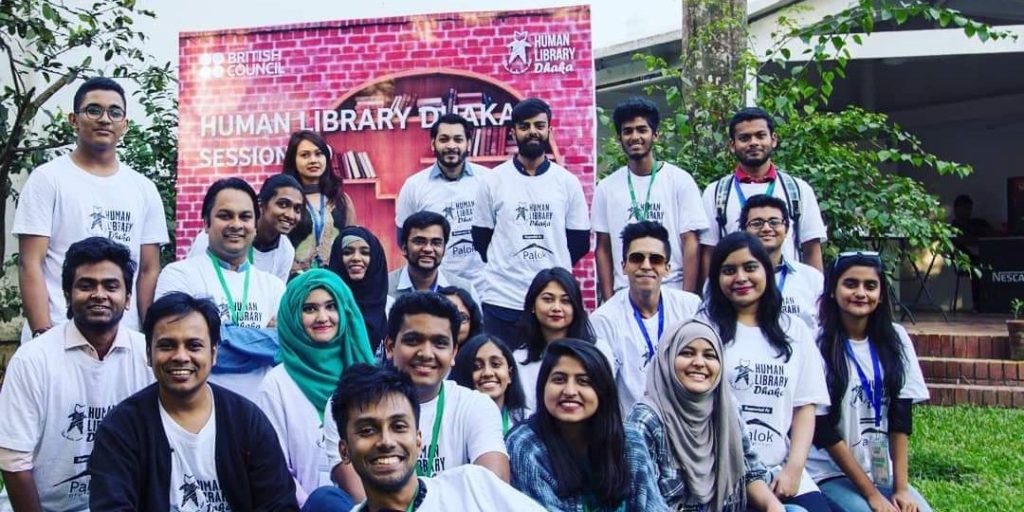
Every country in the world has been affected by the coronavirus in different ways. In Bangladesh, the virus has created panic and uncertainty. Mistrust towards those working in the frontline to fight the pandemic has especially been prevalent, according to Rafsan. That’s why the Dhaka book depot is working on an initiative called ‘Know Your Heroes’, publishing stories of those who work to improve conditions during the pandemic.
“We wanted to highlight stories of these heroes who need to be heard, in order to reduce conflict and create a positive mindset about frontliners and people in general,” adds Rafsan.
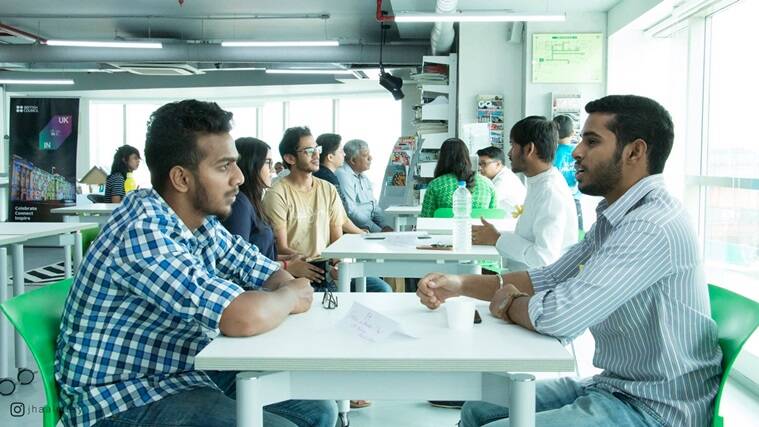
Among the heroes is a trans woman (hijra) who helped out trans communities in Bangladesh during the pandemic. Another example is the captain of the Bangladesh wheelchair cricket team, who sent resources to disabled people across the country. This way, the Human Library in Bangladesh helps to uplift the voices of those who are often unheard.
And who doesn’t want to be understood, to be better included? Getting people to actively engage and take another’s perspective can have long-lasting effects, reducing racism, transphobia and other prejudices. That’s why The Human Library includes topics based on 12 pillars of prejudice, including ethnicity, mental health, disabilities, social status, occupation and religion.
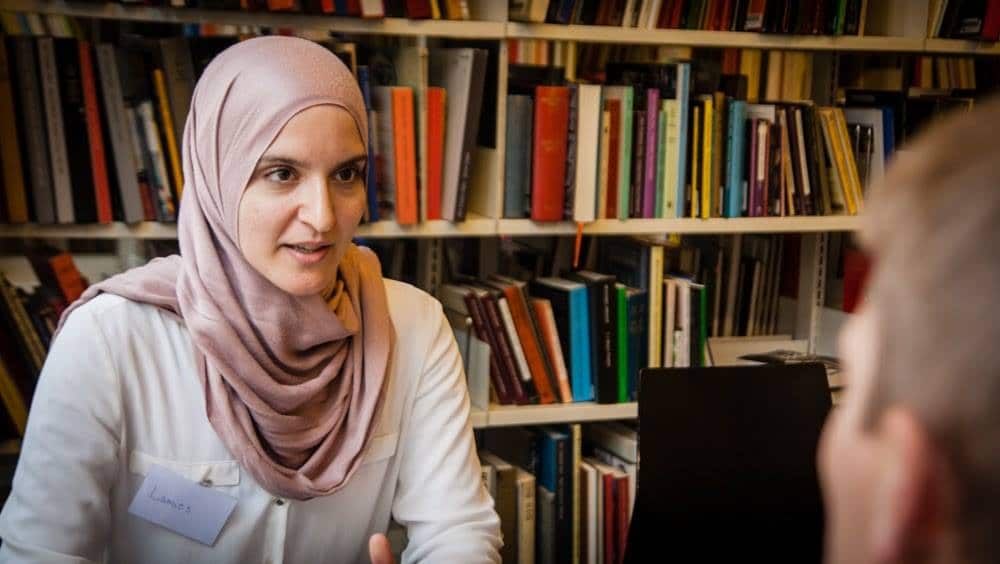
Ronni wants to give us the chance to ‘unjudge’ someone. “All people judge and so we are not here to change your mind or to tell you not to judge. We are here to make information available to you in a safe setting. So you can make your own decisions, but hopefully better informed decisions, not based on a quick judgement, but after more careful consideration.”
The team is aware of a lack of understanding and mutual respect in our civil society. “The news and media are a big contributor to this, in how they portray some groups in society in a mainly negative way. The world is in need of a safe space to find common ground and learn about our differences.”
“All of our books are volunteers, some have been with us for many years, and hearing about how they constantly learn things about themselves when readers ask them something they have not been asked before, just gives us joy. They are getting to know themselves, as well as processing their traumas and experiences, through these dialogues. It is a beautiful process to witness, and it is also a sign that the conversations between reader and book are genuine.”
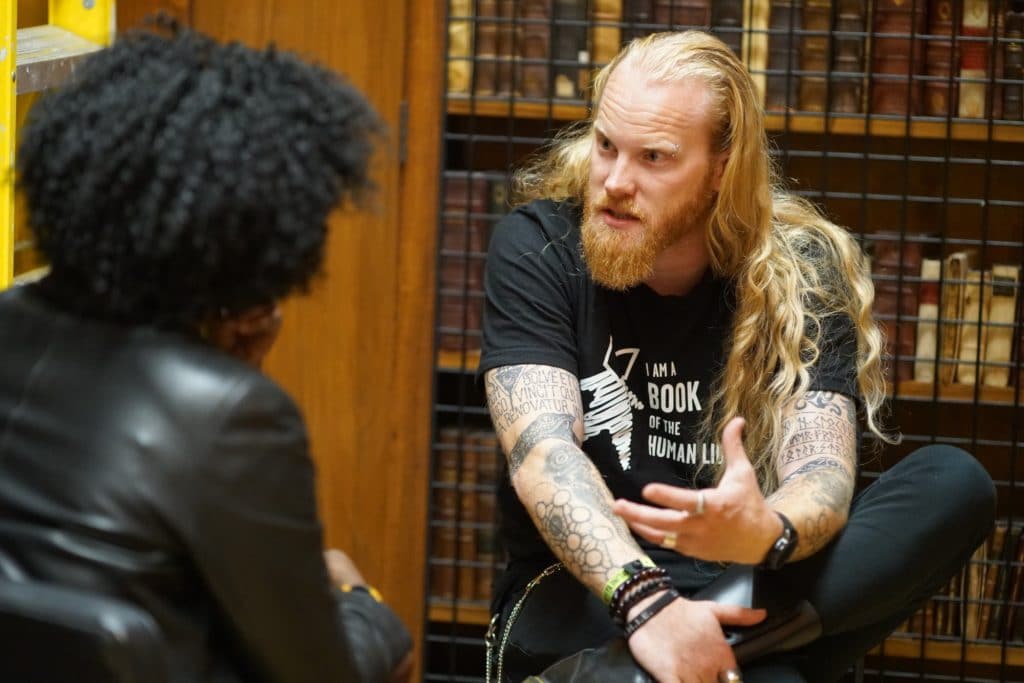
Dan has ADHD and AS, which is a type of autism. He has been a book in the library for five years and says: “The more people, who understand what autism is, and get to understand how to show consideration and be inclusive, the better for me and others like me.” NT means neurotypical and is the abbreviation used for “people with a normal brain”, and Dan enjoys being with people who are not just NT-people, but share the experience of having a different background in some way.
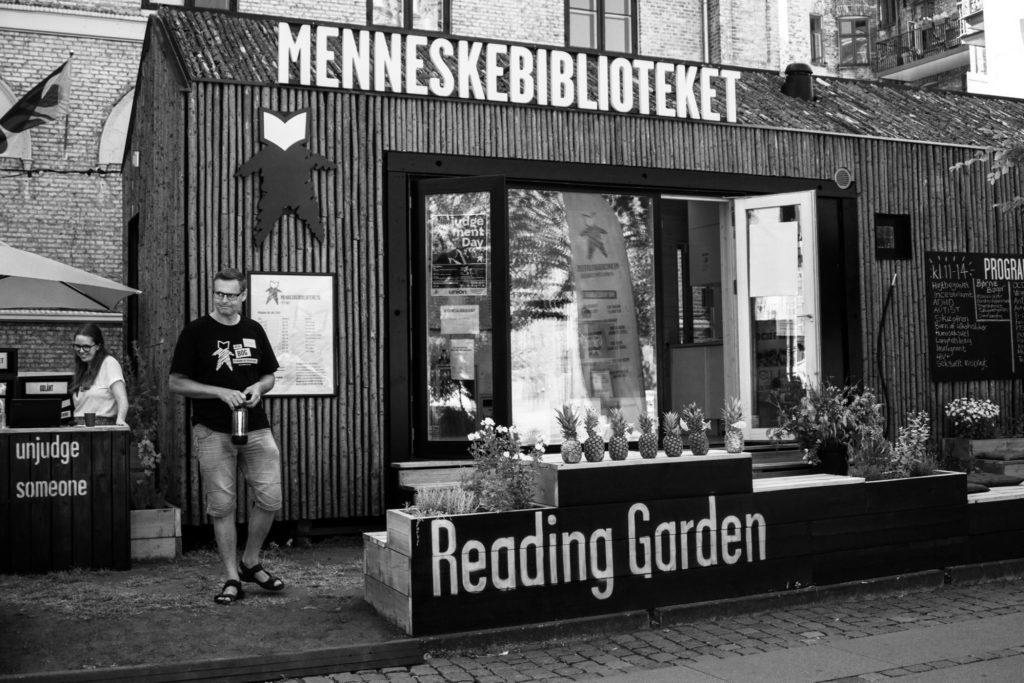
The Human Library opened its first permanent book depot in Copenhagen in June 2020 with a reading garden designed especially for people to meet and an opportunity for schools and other groups to visit. Obviously, the Covid-19 pandemic has forced the library to find new ways to meet readers and continue the conversation is being continued through Facebook Live readings and the virtual Readers Corner events. They are currently developing an unconscious bias quiz and an online library service using video over the internet. This will open conversations up to readers from all over the world to in a global community of books.
“We can promise that being a book in the Human Library is more than you expect and something you will never forget,” adds Ronni. “It is also an opportunity to meet a lot of people that are different from you and yet you will find you share a lot in common.”
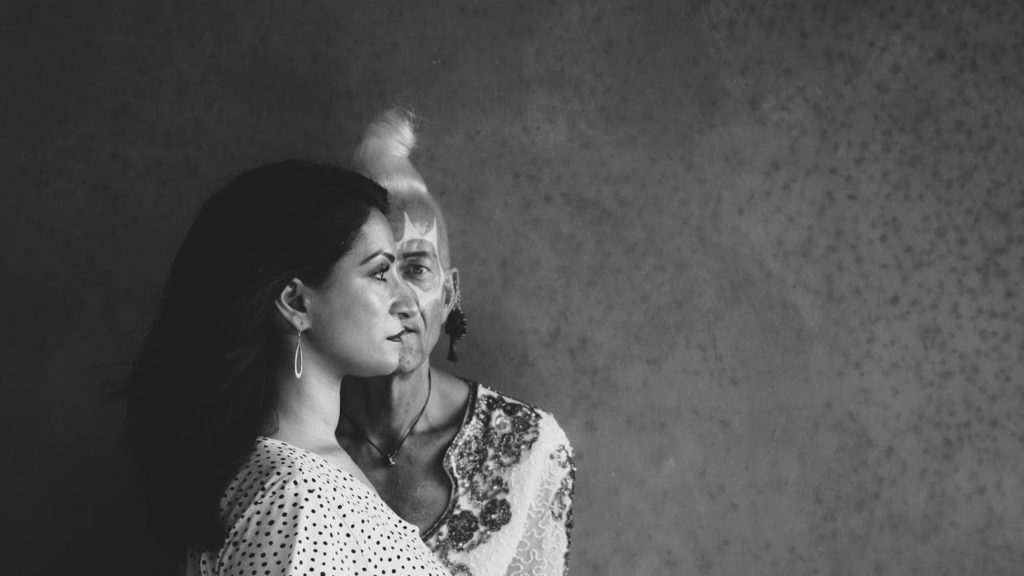
AtlasAction: Do you defy a stereotype? Are you like an open book? Become a book! Volunteer here and follow the Human Library on FB to stay updated on online events in connection with Unjudgement Day. Public events are free and open to anyone – and becoming a reader is a great place to start.
Project leader
Ronni Abergel, Founder, Human Library Organization
Partners
This project has been selected as part of CultureFutures, a storytelling project that maps creative and cultural projects with a social mission – and the artists, collectives and entrepreneurs behind them.
Atlas of the Future is excited to join forces with Goldsmiths Institute of Creative and Cultural Entrepreneurship and the British Council Creative Economy.
Support the Atlas
We want the Atlas of the Future media platform and our event to be available to everybody, everywhere for free – always. Fancy helping us spread stories of hope and optimism to create a better tomorrow? For those able, we'd be grateful for any donation.
- Please support the Atlas here
- Thank you!
